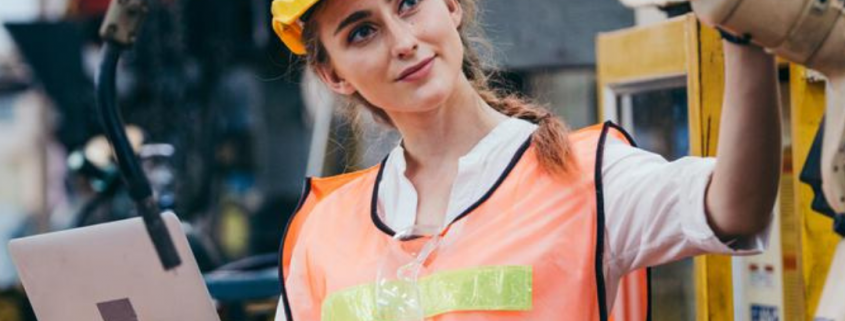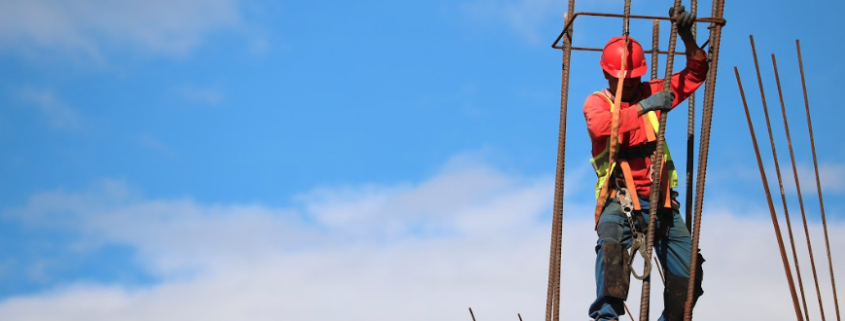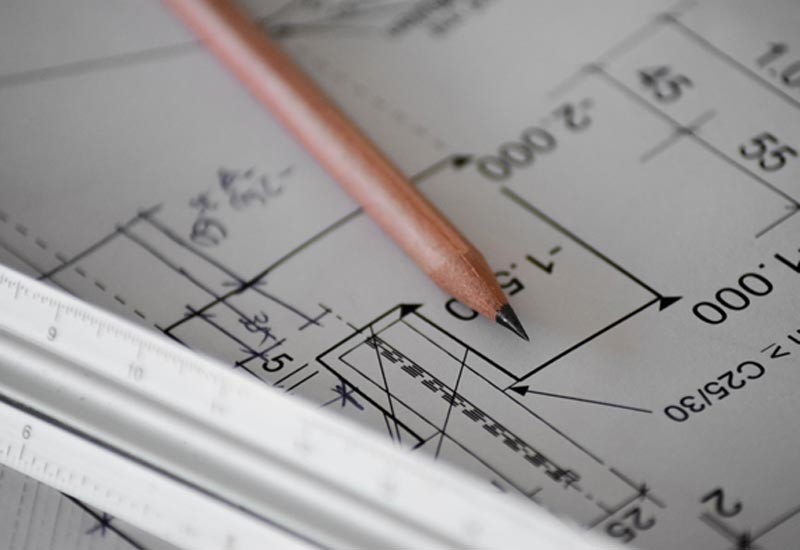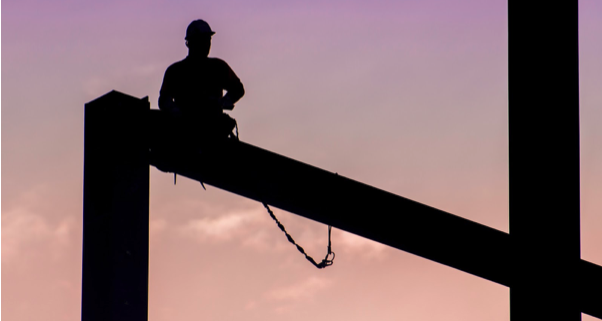
We are excited to introduce our new monthly series of interviews with leading construction professionals. In each episode, we’ll delve into their experiences, challenges, and advice for success in the industry. This month, we’re thrilled to feature Chris Sheehan, Construction Manager at Imperial Homes.
This blog will feature key highlights from the interview with Chris, covering his journey into construction, qualities for success, his impactful role at Imperial Homes, and valuable career advice. For the full video, visit our YouTube channel linked at the end.
Chris’s Professional Journey:

Chris’s journey into construction began early, accompanying his dad to sites while growing up. Not inclined towards academics and without a predefined career path, he received advice that the construction industry always offers employment opportunities.
He then transitioned into his first work experience at Linden Homes, where he spent summers on-site and discovered his passion for being out in the field. Following this, he completed a national diploma in construction.
At the age of 18, Chris started his professional career as a trainee at Banner Homes, where he dedicated 7 years. He then moved to Bargate Homes, spending another 7 years to further develop his expertise. Afterward, he transitioned to Imperial Homes, where he has been for the past 4 years, advancing from Site Manager to his current role as Construction Manager.
Currently, Chris leads a team of 12, which includes two forklift drivers, assistants, trainees, and other managers. Imperial Homes completes 100-150 housing units annually, serving both private and social housing sectors.
Key Qualities for Success in Construction:
As a site manager, Chris believes in setting an example by being organised, arriving first on site and leaving last. He said that being meticulous with materials and subcontractors, along with strong record-keeping skills, sets the foundation for success in his role. As well as reinforcing the fact that everyone makes mistakes, but owning up to them and learning from them demonstrates integrity and growth.
It’s important to know that you don’t have to be an expert in everything; the construction drawings are there to be followed, on top of that you can always observe and learn from the various trades on site. Don’t hesitate to seek assistance or admit when you need help as continuous learning and adaptation are key to thriving as a site manager.
Leadership at Imperial Homes:

Chris likes to stay realistic with his schedules, understanding that a quality product takes time. He aims to complete a house in 22 weeks from the initial oversight, allowing the site manager to work under less pressure and ensuring everything is well-organized on site.
His ethos promotes starting and finishing work earlier, providing flexibility to accommodate his team’s personal lives. Chris believes that excessive stress leads to higher turnover, so he encourages a supportive environment. If someone feels stressed, they have the flexibility to take a 15-minute break, grab a coffee, or simply relax to return with a fresh mind. Additionally, he doesn’t encourage weekend work, prioritizing work-life balance for his team.
In recent years, the housing sector has faced significant challenges due to the war, COVID-19, and rising inflation. Chris explained that as a Site Manager, such issues are often not as visible since the focus is primarily on the site. However, as a Construction Manager, he encounters these challenges daily. The directors of Imperial Homes are working tirelessly behind the scenes to secure new sites, whether through partnerships with housing associations, private developments, or split sites.
Sales have become more difficult, and buyers are increasingly demanding. To address this, Imperial Homes ensures that everything is built according to schedule to meet their preliminary targets. Amidst the housing crisis, proving to be a reliable housebuilder and forming strong partnerships with housing associations is crucial, while the private sector remains an option, it presents more difficulties in the current market. Additionally, maintaining a good reputation with local agents and trades is essential for sustained success.
To make Imperial Homes stand out, they focus on meticulous presentation—ensuring all landscaping is completed and the houses look outstanding. Sales and Marketing Managers also highlight unique features to attract buyers.
Career Advice:
When asked what advice would you give to someone looking to start in the Construction industry, Chris replied, “Stick with it even when it’s tough and stressful. The industry has undergone significant changes, with more women now holding technical and site manager roles, highlighting the importance of attention to detail. Once you’re established in construction, it can lead to a successful career path”.
Conclusion:
We hope you found Chris’s insights as valuable as we did. Stay tuned for our next interview, where we’ll be speaking with Nina McQuay, Assistant Site Manager. There will be a new video posted on our YouTube on the 1st of every month with various specialists from the construction industry. Don’t miss out on these informative and engaging discussions!
The full videos will be available on our YouTube channel linked here: https://www.youtube.com/channel/UCHsG5Hyzf7tU17Cc2WCvM3Q
FBR – Recruitment Experts for Construction, Residential, Civil Engineering, and Trades Across South East England
At FBR Recruitment, we excel in delivering recruitment solutions throughout the South East, Home Counties, and South Coast of the UK. Our coverage includes Berkshire, Buckinghamshire, Dorset, Essex, Hampshire, Hertfordshire, Kent, Surrey, East & West Sussex, and Middlesex. Whether you’re a construction contractor, property developer, civil engineering company, or job-seeker in the construction sector, FBR Recruitment is your trusted partner for all hiring needs. Contact us today to discover how we can assist with your staffing requirements and workforce solutions.
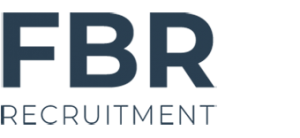


 The construction industry is undergoing a transformative shift with the integration of robotics, a development that’s poised to revolutionize how projects are executed. From enhancing efficiency to reshaping job roles, the impact of robotics in construction is profound and multifaceted. In this blog post, well delve into how robotics is being incorporated into construction sites and the significant changes it brings to the industry and its workers.
The construction industry is undergoing a transformative shift with the integration of robotics, a development that’s poised to revolutionize how projects are executed. From enhancing efficiency to reshaping job roles, the impact of robotics in construction is profound and multifaceted. In this blog post, well delve into how robotics is being incorporated into construction sites and the significant changes it brings to the industry and its workers.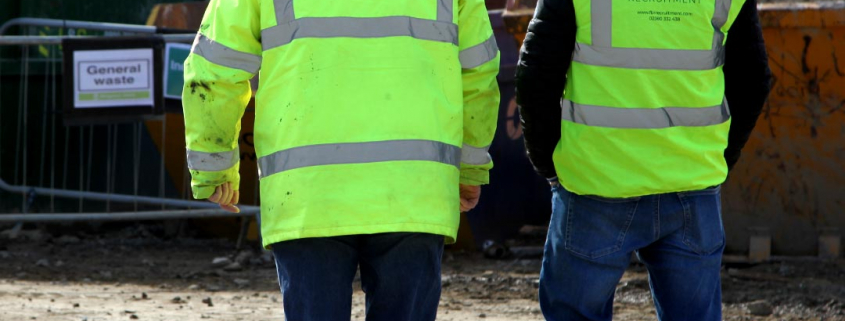
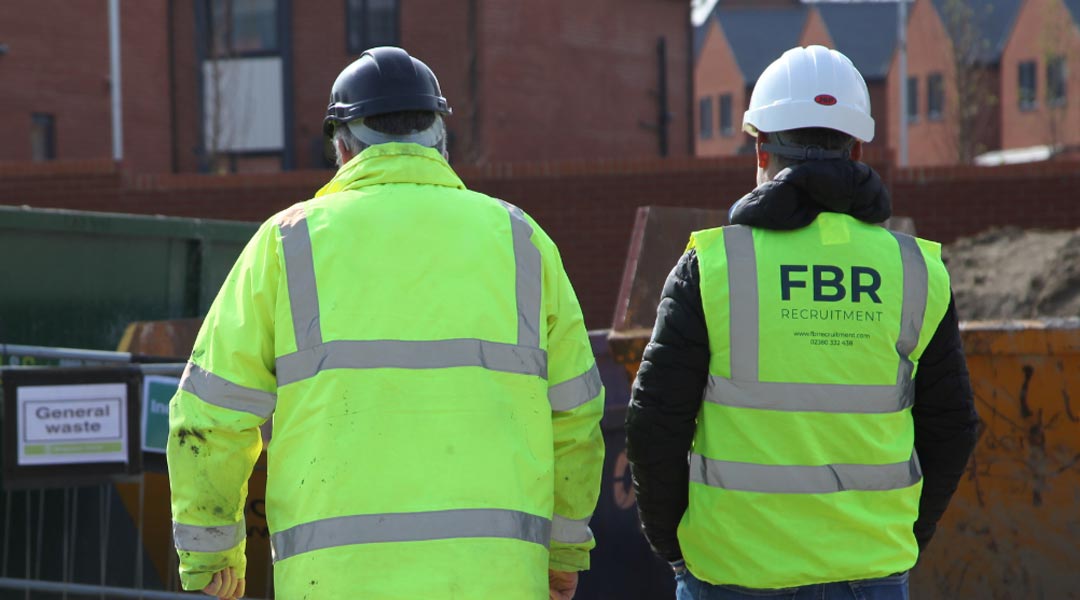 In the ever-evolving landscape of the construction industry, both clients and candidates often find themselves seeking guidance and clarity amidst a sea of questions and uncertainties. At
In the ever-evolving landscape of the construction industry, both clients and candidates often find themselves seeking guidance and clarity amidst a sea of questions and uncertainties. At 